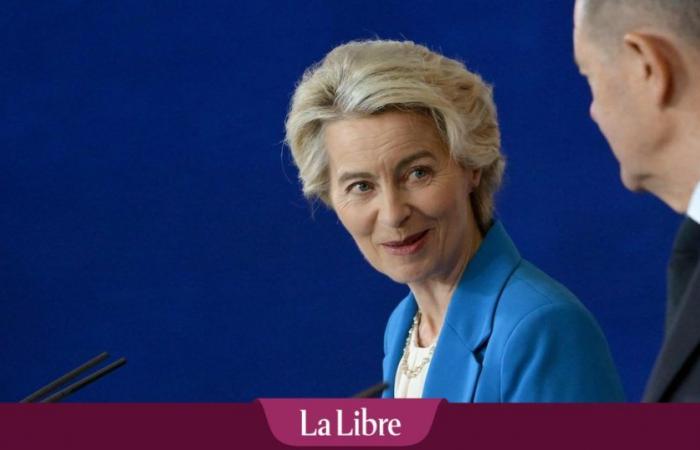
“We need a new legislative framework to strengthen our capacity to act,” explained the President of the Commission in this letter addressed to EU countries, before a European summit on Thursday and Friday in Brussels, in part devoted to migration issues.
To do this, Brussels is proposing to facilitate the expulsions of people in an irregular situation, in particular by establishing mutual recognition of decisions taken by this or that Member State.
The Polish government threatens to suspend the right to asylum: “politically irresponsible” statements
“System shortcomings”
“We must build a level of harmonization and trust which will ensure that migrants, subject to a decision to return to one country, cannot use the gaps in the system to avoid this return elsewhere,” explained Mrs von der Leyen.
Less than 20% of decisions to expel migrants in an irregular situation are followed up, she further underlined, promising reinforced cooperation with the third countries concerned, for example by toughening up the granting of visas to countries recalcitrant.
“The alignment of visa policy has proven to be an important tool for managing irregular movements to the EU,” noted Ms von der Leyen, taking Bangladesh and Ghana as examples.
The President of the Commission also suggests developing “strategic” relations with the countries of origin and transfer, like what has already been done with Libya or Tunisia. The EU has signed agreements with these countries intended, among other things, to slow down the departure of migrants to the EU from their territory, or even repatriate them to their countries of origin.
In Europe, shift to the right on immigration issues
“Returns from North Africa to countries of origin have intensified through operations financed by the EU to reach 17,700 (returns) in 2024,” welcomed Ms von der Leyen.
These agreements put in place in Tunisia or Libya have made it possible to reduce irregular entries of migrants into the EU via the central Mediterranean by some 66%, she further underlined.
But, she acknowledged, arrivals via the western Mediterranean and the Atlantic to Spain increased at the end of September by 56% year-on-year. She therefore recommends strengthening the EU’s partnership with countries like Mauritania, to slow down these departures.
The interior ministers of the European Union debated last Thursday in Luxembourg a further tightening of migration policy, between calls to revise the “return directive” and discussion on transfers of migrants to third countries.
Several European countries have called for a review of this 2008 “return directive” which harmonizes the rules on deportation at the borders.
France and Germany notably supported a note from the Netherlands and Austria on the subject in order to “facilitate” and “accelerate” returns.
However, a first attempt at revision in 2018 failed.





